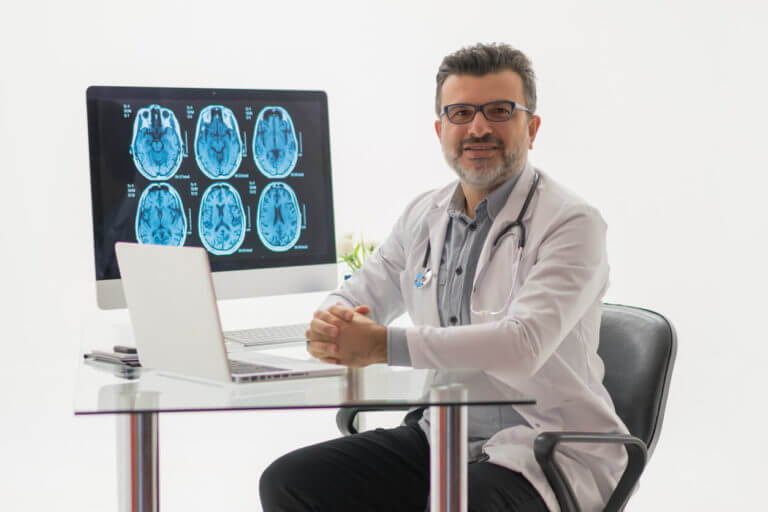
Cerebral palsy (CP) is a neurological disorder affecting movement and muscle tone. According to studies, it is caused by injury to the brain before, during, or after birth. The symptoms show in infancy or early school years. While there is no cure for the condition, there are effective treatments and strategies that can help in managing cerebral palsy symptoms and improve the quality of life of a child with cerebral palsy.
Here are some practical tips to help with navigating the daily challenges of living with cerebral palsy and a recommendation for a top neurologist in Farmington Hills, MI.
Understanding Cerebral Palsy
Cerebral palsy is caused by abnormal brain development or damage to the developing brain, affecting a person’s ability to control their muscles.
Symptoms can vary widely but often include:
- Muscle stiffness or floppiness
- Poor coordination and balance
- Tremors or involuntary movements
- Delays in reaching developmental milestones, such as crawling or walking
- Difficulty with fine motor skills, such as grasping objects
- Speech and language delays
- Seizures
- Joint contractures or stiff joints
- Intellectual disabilities
Working with a Neurologist
A neurologist specializes in treating disorders of the nervous system, including cerebral palsy. Finding a neurologist near you can be the first step in developing a comprehensive cerebral palsy treatment plan.
To search for neurologists near you, type “neurologist near me” in the Google search box. A neurologist can assess your or your child’s needs and recommend the most advanced technologies available in cerebral palsy treatment.
Physical Therapy
Physical therapy is crucial for managing cerebral palsy symptoms. A physical therapist can help improve strength, flexibility, and mobility through exercises and stretching routines tailored to individual needs.
Regular physical therapy can help:
- Increase muscle control and coordination
- Reduce muscle stiffness
- Enhance balance and prevent falls
Occupational Therapy
Occupational therapy focuses on improving the ability of someone with cerebral palsy to perform daily activities and gain greater independence.
An occupational therapist can provide tools and techniques to:
- Improve fine motor skills
- Enhance hand-eye coordination
- Make tasks like dressing, eating, and writing easier
Speech and Language Therapy
Many individuals with CP have difficulty with speech and communication. Speech therapy can assist in:
- Improving speech clarity
- Enhancing language skills
- Developing alternative communication methods, such as sign language or communication devices
Medication
Medications can help manage various CP symptoms, such as muscle spasticity and seizures. Common medications include:
- Muscle relaxants to reduce stiffness and spasms
- Anticonvulsants to control seizures
- Anti-inflammatory drugs to manage pain
Consult with your neurologist to determine the most appropriate medication regimen.
Assistive Devices
Assistive devices can significantly improve independence and quality of life for people with CP. These may include:
- Braces and orthotic devices to support movement and posture
- Wheelchairs and walkers for mobility assistance
- Communication aids, like speech-generating devices
Your therapist or neurologist can recommend devices that suit your specific needs.
Nutritional Support
Proper nutrition is essential for overall health and can be particularly important for individuals with cerebral palsy who may have difficulties with chewing or swallowing.
A nutritionist can help:
- Develop a balanced diet plan
- Recommend nutritional supplements if needed
- Provide tips for easier and safer eating
Lifestyle Modifications
Lifestyle modifications can play a significant role in improving the quality of life for children with cerebral palsy.
Regular Exercise
Encouraging regular physical activity and exercises tailored to the child’s abilities can help maintain muscle strength, flexibility, and overall health. Activities like swimming, adaptive sports, and physical therapy exercises can be beneficial.
Proper Rest and Sleep
Ensuring the child gets an adequate amount of rest and quality sleep is essential for their growth, development, and overall health. Creating a consistent bedtime routine can promote better sleep patterns.
Assistive Devices
Using appropriate assistive devices such as braces, orthotics, mobility aids, or communication tools can enhance the child’s independence and quality of life.
Accessible Environment
Creating a safe and accessible environment at home, school, and other settings can promote independence and reduce barriers for the child. This may include ramps, grab bars, adaptive furniture, and other modifications.
Support and Resources
Connecting with support groups and resources can provide emotional support and practical advice for managing cerebral palsy in your loved one. Ask your neurologist for recommendations on local or online communities where you can share experiences and learn from others facing similar challenges in living with cerebral palsy.
Regular Medical Checkups
Routine medical checkups with your neurologist and other healthcare providers are essential for monitoring health and adjusting treatment plans. Early intervention and consistent care can make a significant difference in managing cerebral palsy symptoms.
Cerebral Palsy Treatment in Farmington Hills, MI
Managing cerebral palsy symptoms requires a comprehensive approach and the support of neurology professionals. The board-certified neurologists at Associates in Neurology are dedicated to helping families and children affected by cerebral palsy.
Our goal is to help your loved one have a better quality of life and achieve greater independence with their condition. To schedule a consultation with one of our neurologists, call our office today at (248) 478-5512 or use our secure appointment request form.
The friendly team at Associates in Neurology looks forward to welcoming you to our clinic.


